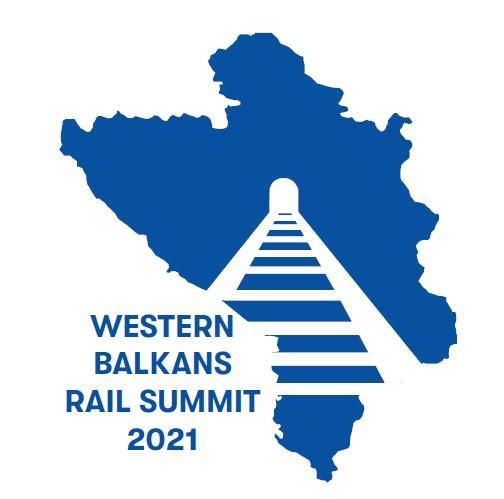
Building a modern, digitalised rail network with direct express train connections between major cities in the region will help establish better connectivity and provide a safer and more environmentally sustainable mode of transport for people and businesses in the Western Balkans. This was recognised as a key priority of the Dedication to Rail, signed today by ministers in charge of transport in the region at the First Western Balkans Rail Summit, held in Belgrade. The event was organised by the European Investment Bank (EIB) and the European Bank for Reconstruction and Development (EBRD), and was under the auspices the Ministry of Construction, Transport and Infrastructure of Serbia.
The summit gathered ministers from the Western Balkans and neighbouring countries, representatives of the European Commission and rail professionals for discussions on how to advance regional and European transport policy and contribute to building digitalised and sustainable rail transport systems in the region. The governments committed to a number of priorities including rebuilding direct intercity train links connecting the region and the European Union, enhancing the digitalisation of railway systems to interconnect and exchange data for cross border passenger and freight transport, increasing the safety of level crossings, and opening up rail markets.
“I hope that the First Western Balkans Rail Summit will create momentum to influence positive change with a focus on investments in rail transport, making rail travel attractive again for citizens and business in the region. This can be done by focusing simultaneously on two tracks — adopting standards and building and improving infrastructure. It is encouraging to see that the summit brought together policymakers and representatives of financial institutions that can lead the change in positive direction. As one of the most environmentally friendly means of transport, rail is responsible for a tiny fraction of transport-related greenhouse gas emissions and has huge potential to contribute to the region’s economic prosperity,” said Matej Zakonjšek, Director of Transport Community Permanent Secretariat.
“The EIB is glad to support all initiatives that help sustainable mobility and accelerate the modernisation of the railway in line with EU standards. Smarter, safer and digitalised rail across the region will help us address environmental issues and enable a shift to more sustainable transportation. To achieve this, this sector requires unprecedented investments and technical expertise. The EIB looks forward to rolling out the Economic and Investment Plan and helping our local partners to access the funds available. As a decades-long partner to the region and a lead financier of the railway, the EIB has invested over €5 billion in the transportation sector to date,” said Lilyana Pavlova, EIB Vice-President responsible for the Western Balkans.
“The EBRD is helping the Western Balkans countries to green their economies with almost half of our investments channelled to projects that support the green agenda. As the world is turning to greener and more responsible modes of transport, and with finance available, there is now an unmissable opportunity for the Western Balkans to invest in their railways. Together with the European Union and the EIB, we are strongly committed to continuing to provide well-structured and affordable finance for the development of railways as a sustainable, greener and safer means of transport in the Western Balkans,” said Nandita Parshad, Managing Director, Sustainable Infrastructure Group, EBRD.
The summit was organised to coincide with the arrival of the Connecting Europe Express train. As part of the European Year of Rail, the train, which will cross 26 countries across the continent, arrived in Belgrade on 12 September, from where it will continue its tour in the region.
The European Year of Rail is part of the European Union's efforts under the European Green Deal, its plan to make the economy sustainable by achieving climate neutrality by 2050. One of the key elements of the plan is to roll out cleaner and healthier means of transport, as the transport sector is currently responsible for about 25% of the Union's greenhouse gas emissions. The European Green Deal seeks a 90% reduction in transport emissions by 2050. With only a 0.4% share of greenhouse gas emissions in total EU transport, rail emits far less CO2 than equivalent travel by road or air and is one of the most sustainable, innovative and safest modes of transport in the European Union. Compared to the EU where 75% of total train-kilometres are travelled by electric-powered trains, in the Western Balkans less than one-third of railway lines are electrified.